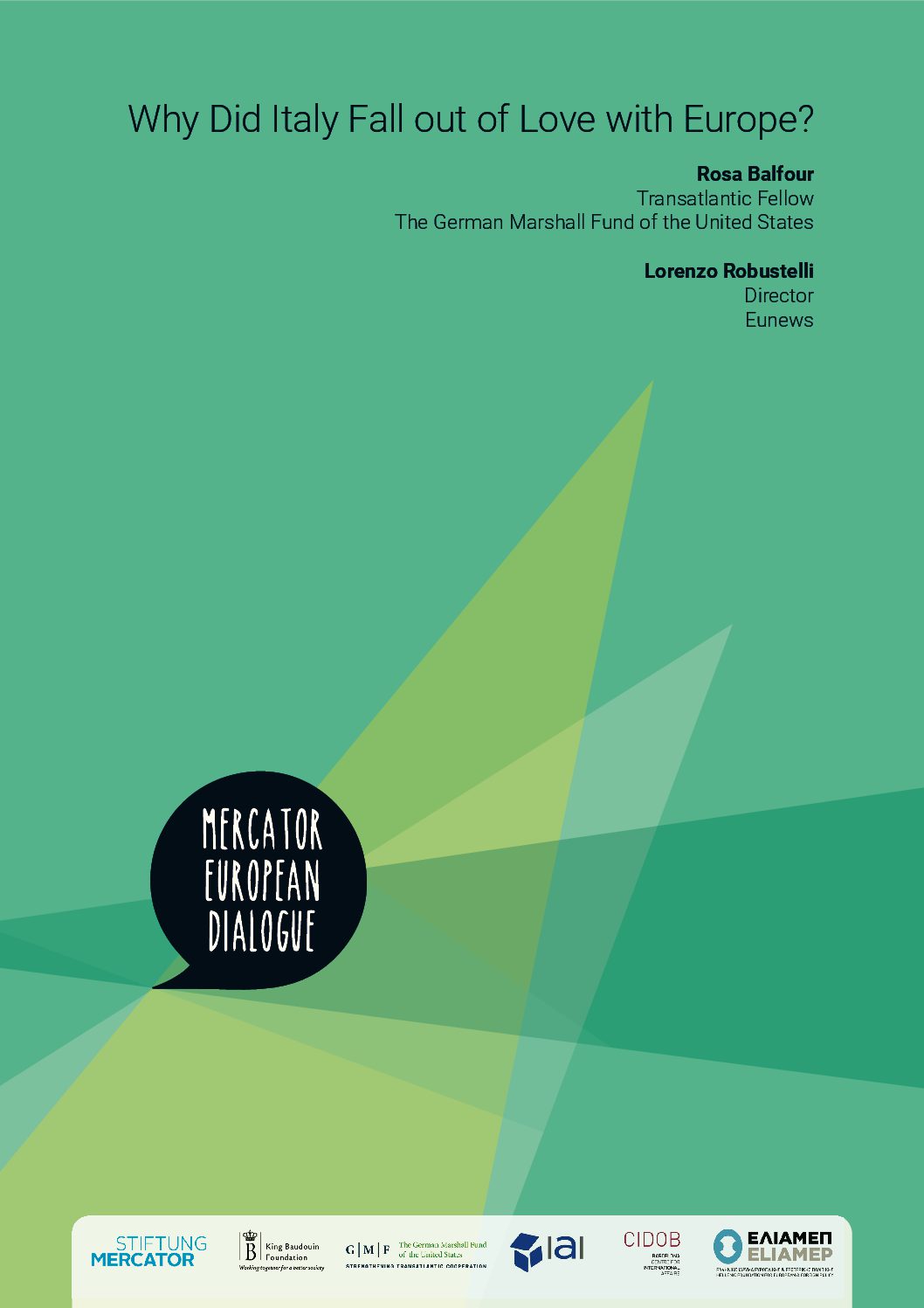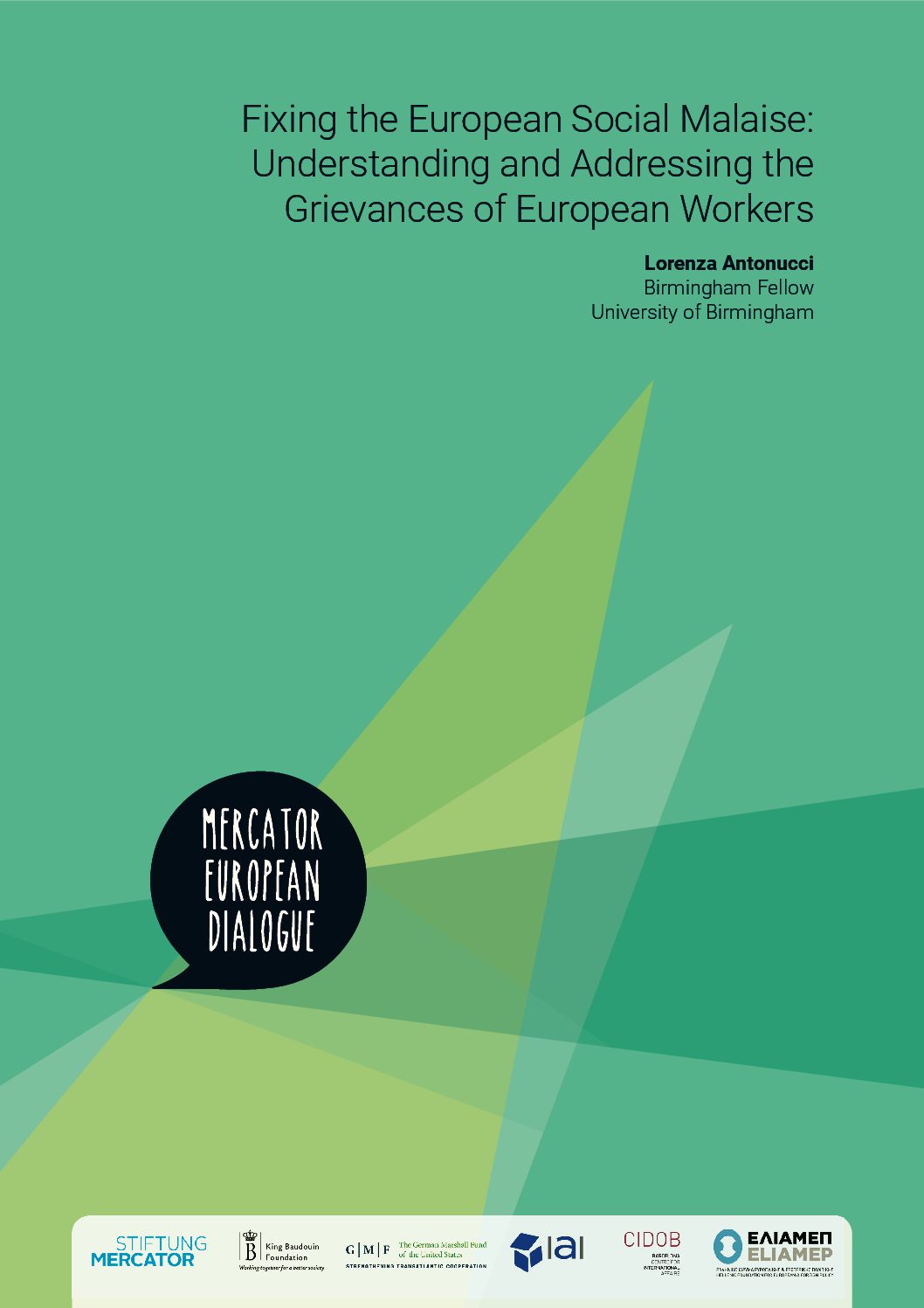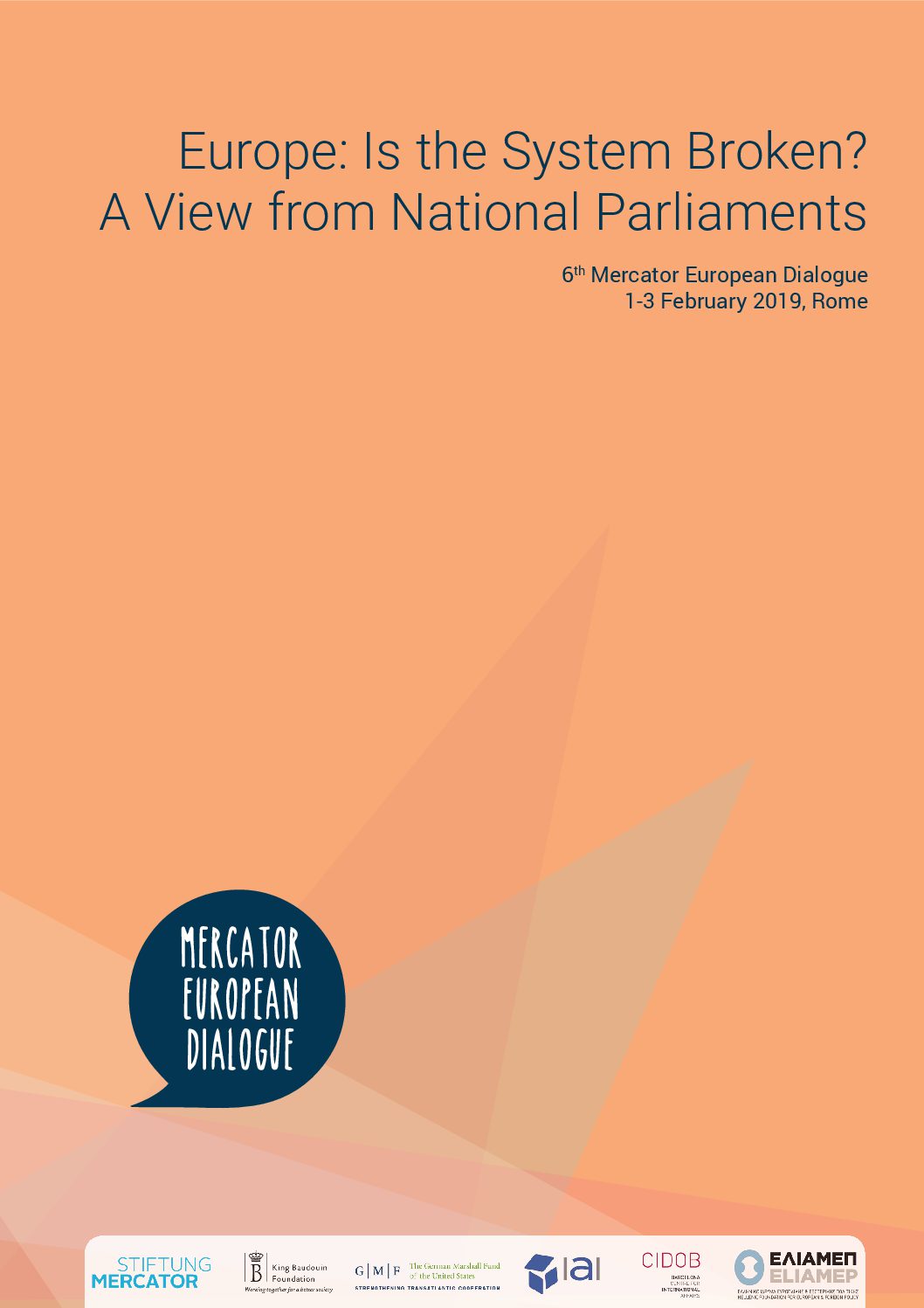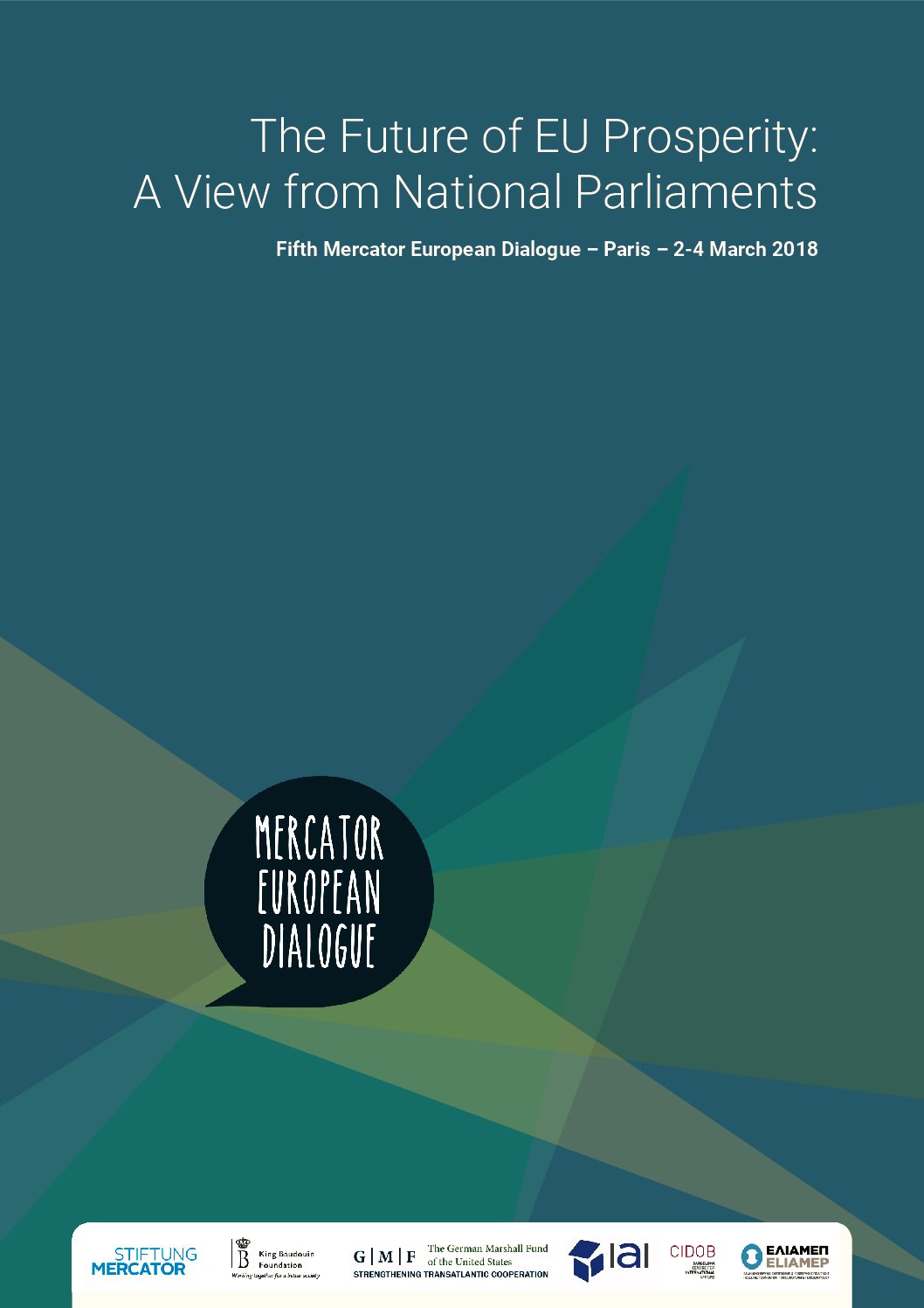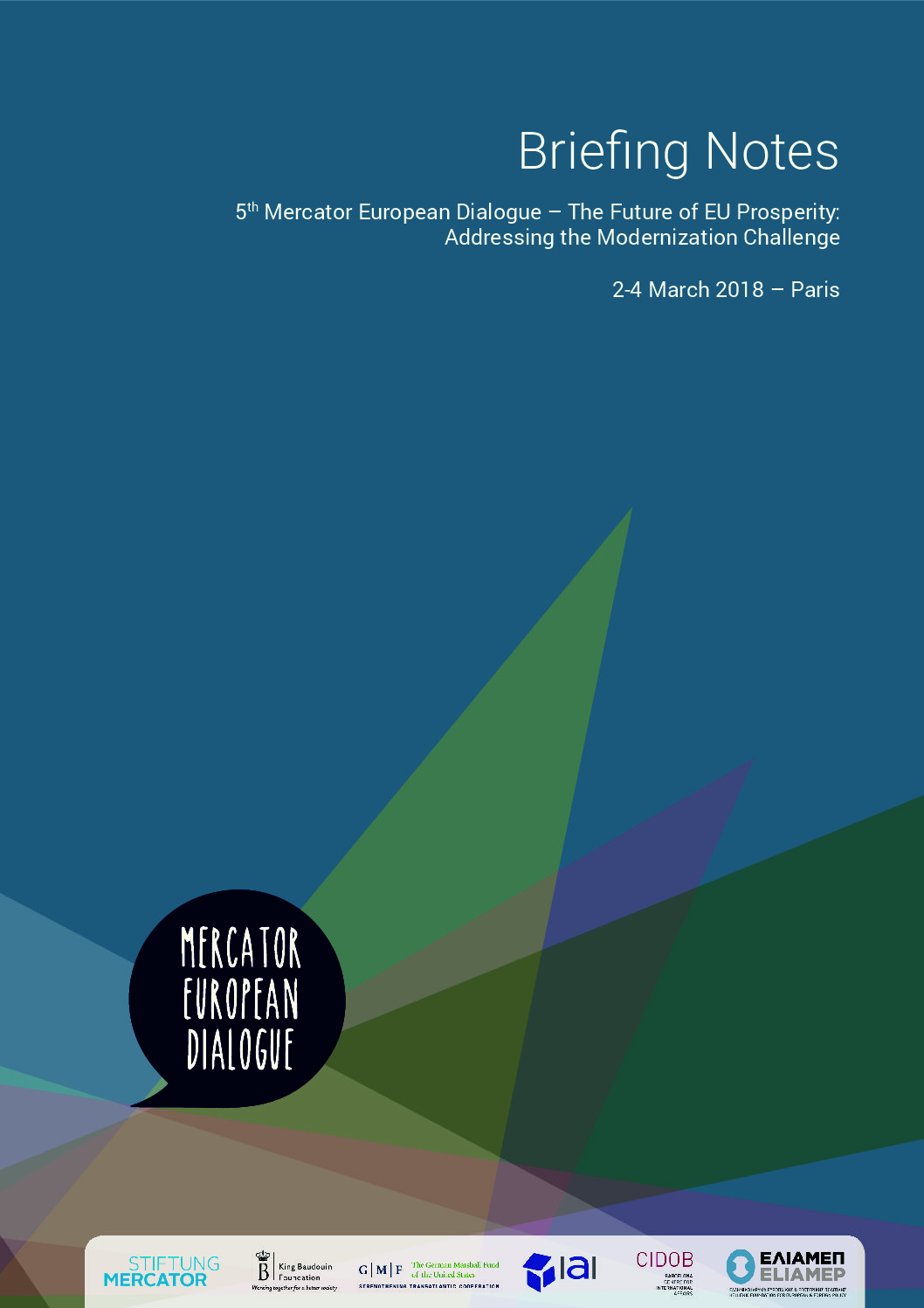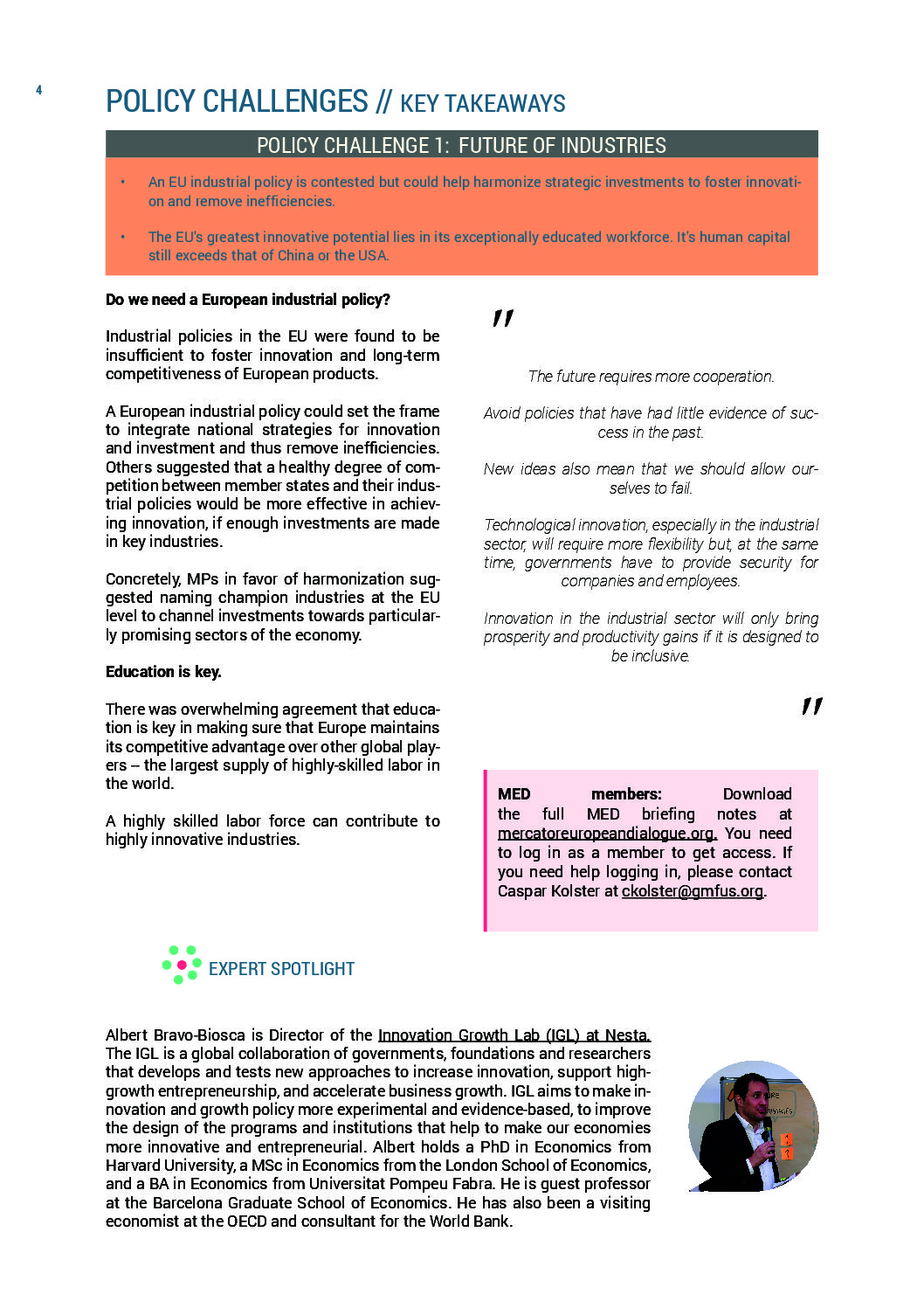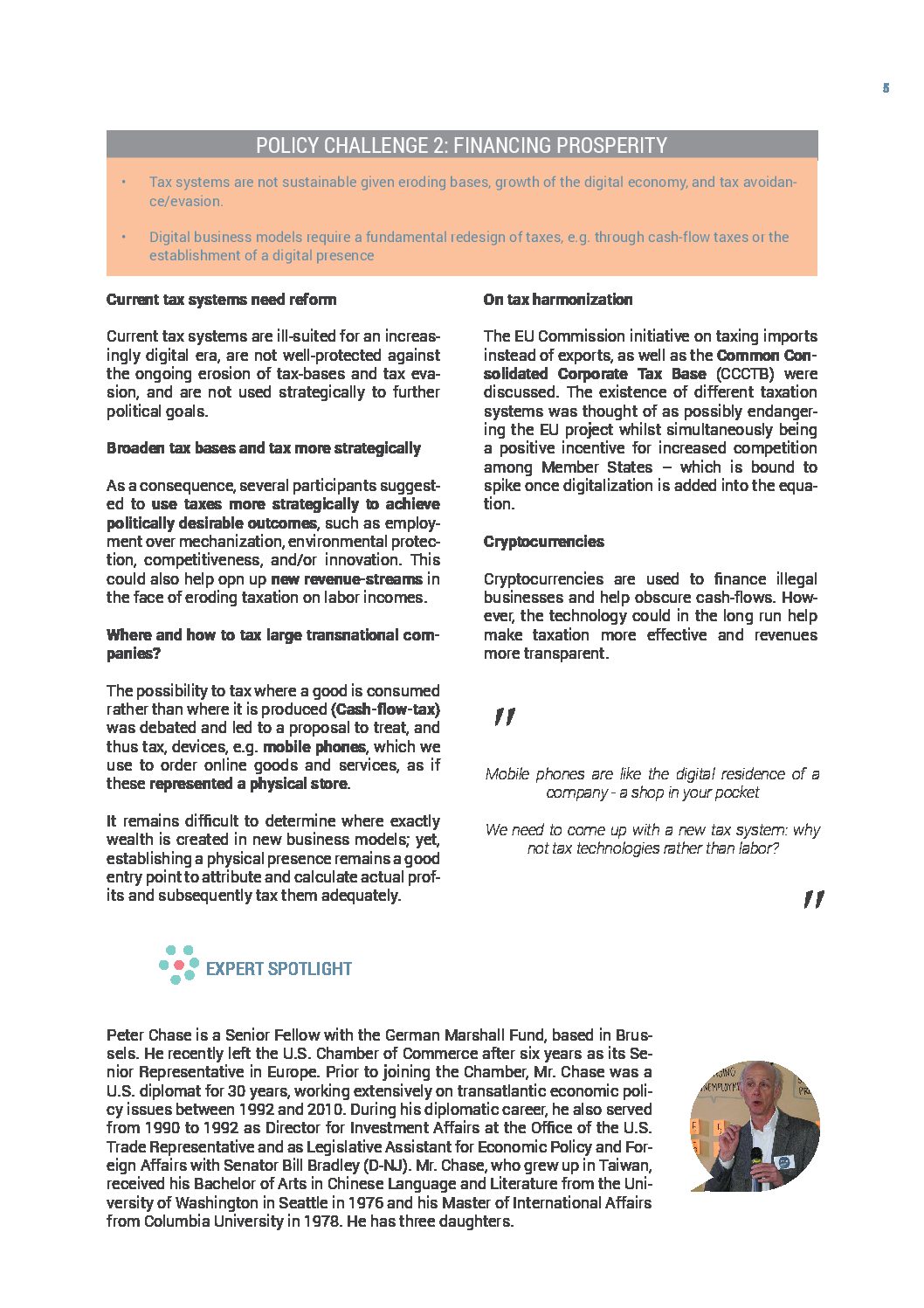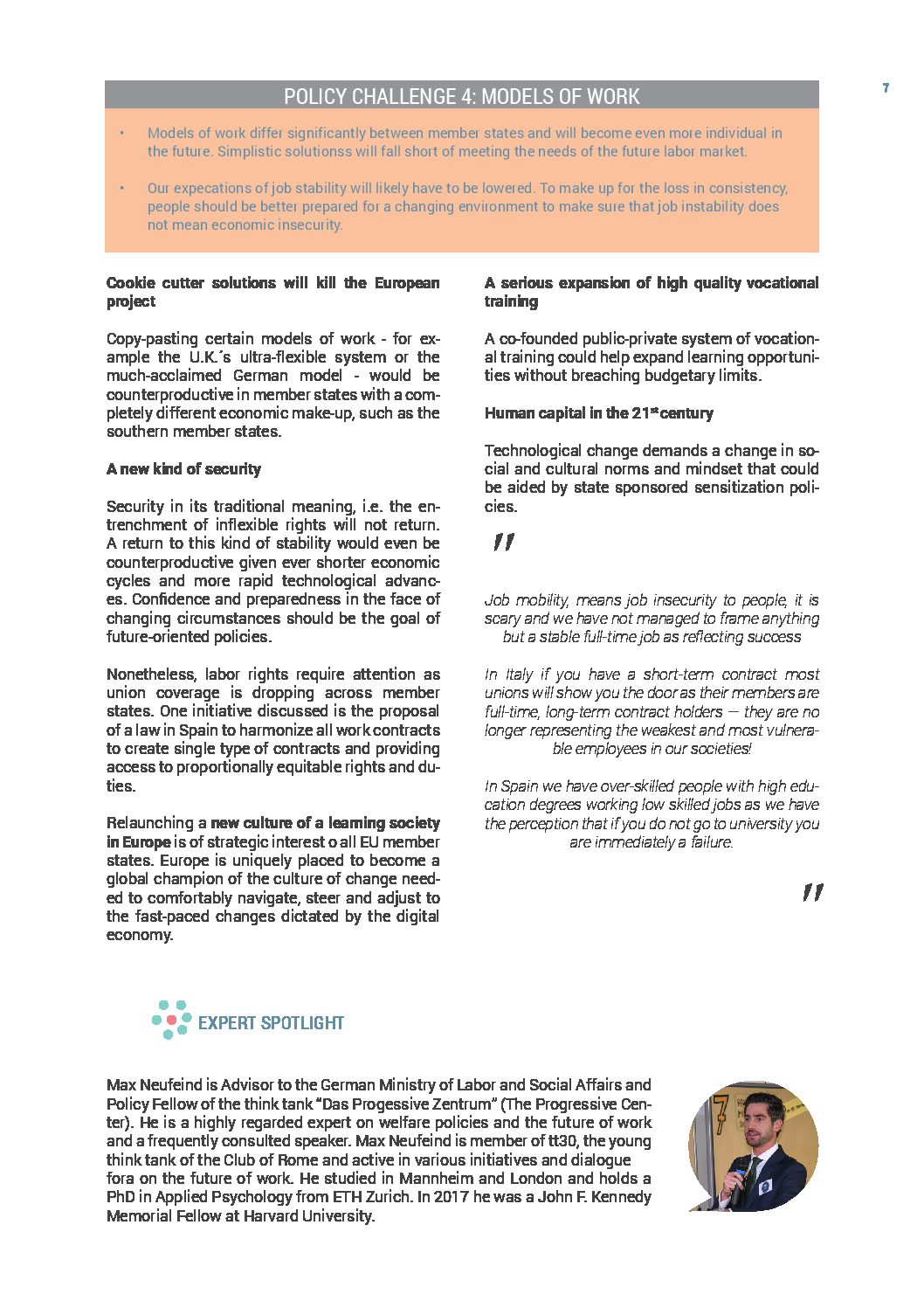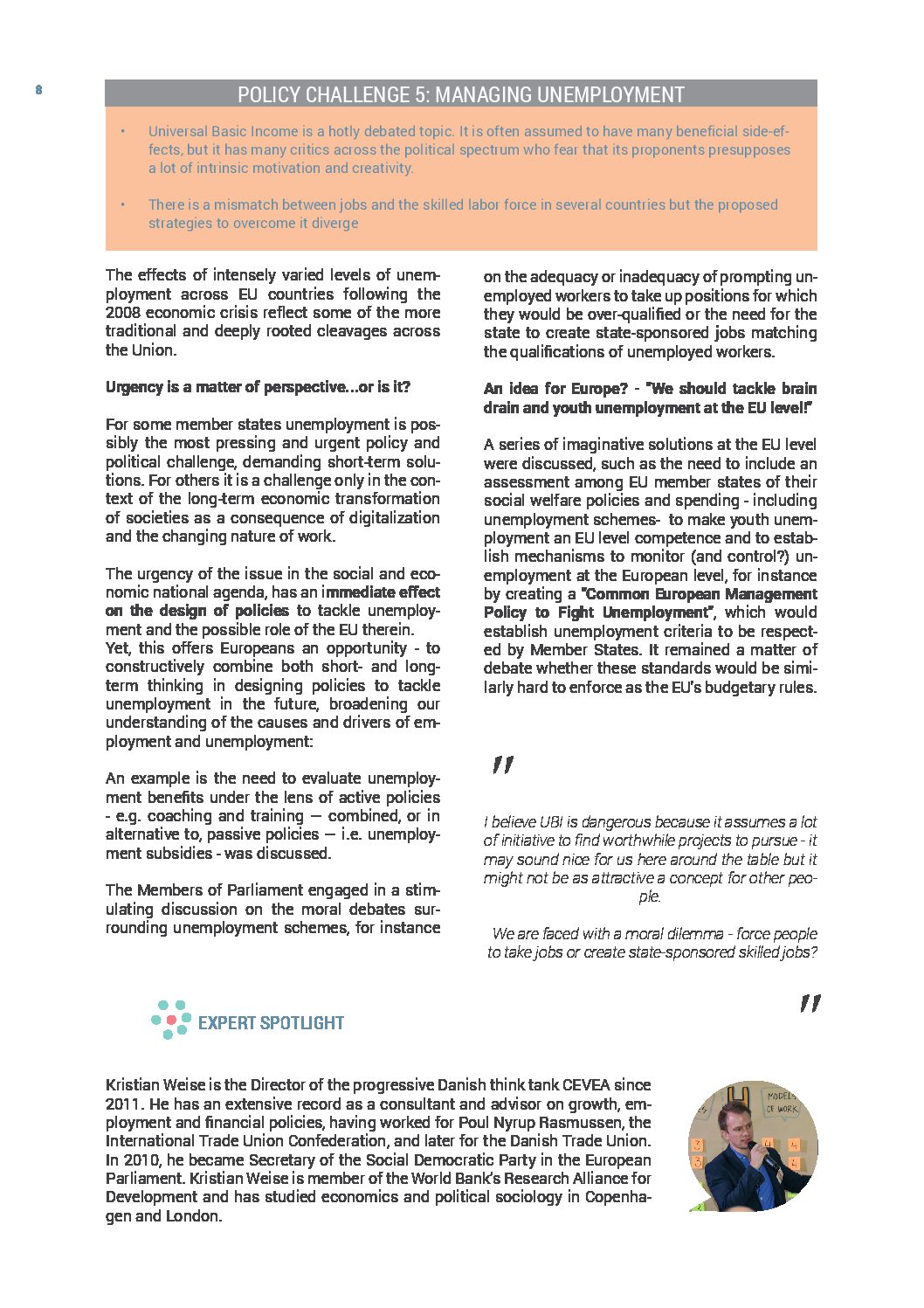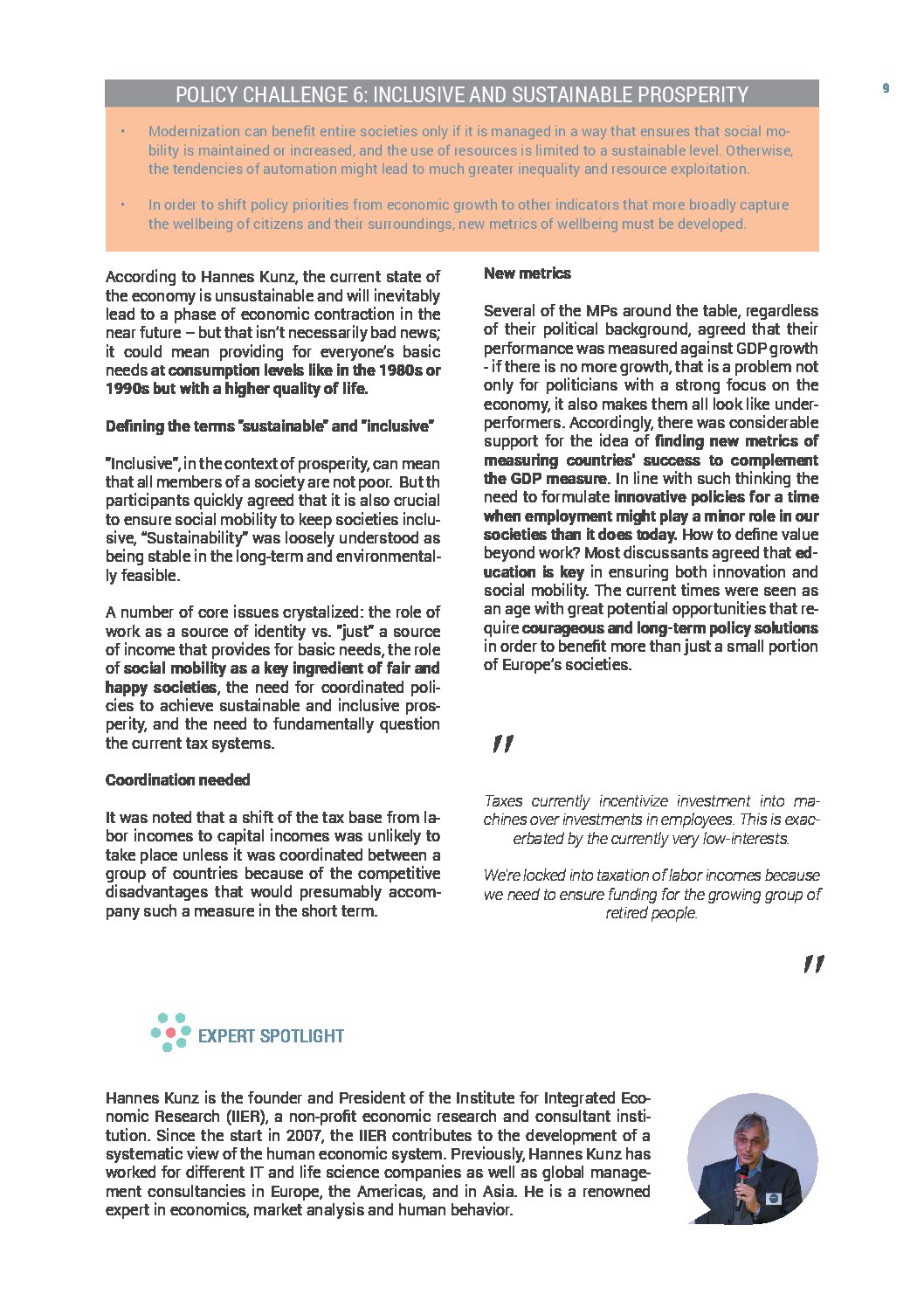Through establishing shared and national policies, members of parliament can actively craft the system of institutions and procedures that shape the European economy. EU member states face shared and individual challenges that require coordinated economic policies.
Italy’s struggles with the EU’s management of migration and the economy are emblematic of dilemmas that pertain to other countries as well. Addressing them would be in the interest of not just Italy, but the entire Union.
There is a growing distrust toward national and EU institutions among those who are dissatisfied with their living and working conditions. To find policy solutions, policymakers ought to first understand the drivers of this 'social malaise.'
Up against challenges that are symptomatic of system failure, like broken institutions, economic malfunctions, and mass distrust, MPs come together to answer an important question: how do we keep societies together in times of disruption?
The confluence of globalization, digitalization, technological advances and demographic change are radically reconfiguring the socio-economic fiber of our societies. Our network discusses 'what next?' for the European Union.
The European industrial landscape is facing a projected shortage of ICT skills and associated competitive innovation. Sustainable economic transformations in the sector are essential for EU economic prosperity in the future.
Industrial policies in the EU were found to be insufficient to foster innovation and long-term competitiveness of European products, highlighting the need for an integrated European industrial policy from national parliaments.
Current European tax systems need reform as they are ill-suited for an increasingly digital era, are not well-protected against the ongoing erosion of tax-bases and tax evasion, and are not used strategically to further political goals.
Copy-pasting certain models of work across the EU would be counterproductive between member states with a completely different economic make-up. Following an overly unified model could end the European project.
For some member states unemployment is a pressing and urgent policy and political challenge demanding short-term solutions. For others it is a challenge only in the context of the long-term economic transformation of societies.
If the economy contracts in the future, would this necessarily be a disaster? Europe could have the consumption levels of the 1980s or 1990s but with a higher quality of life. What do we want from long-term sustainability?



